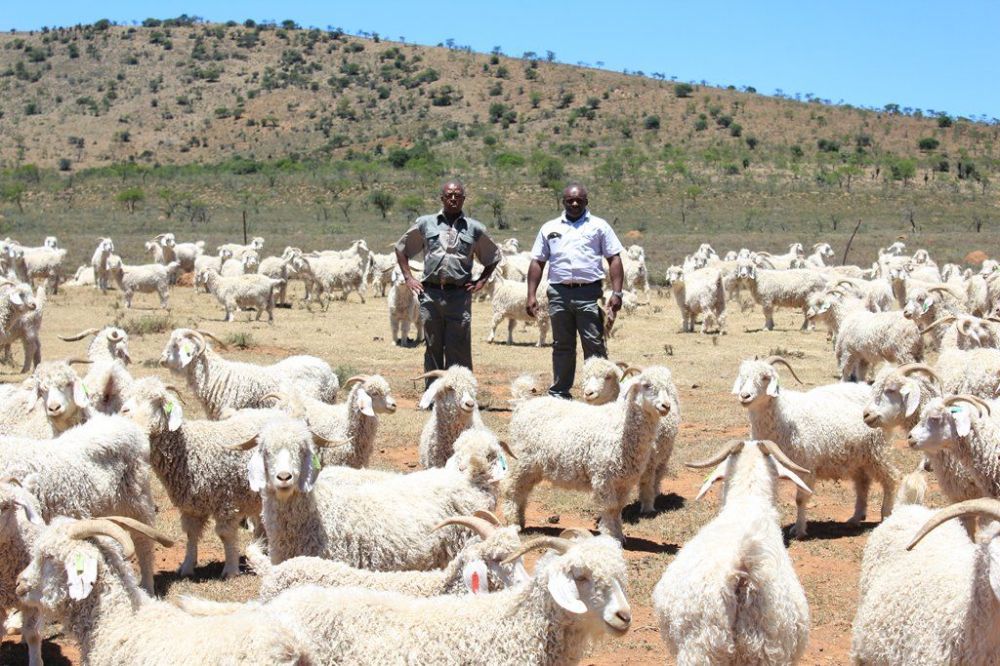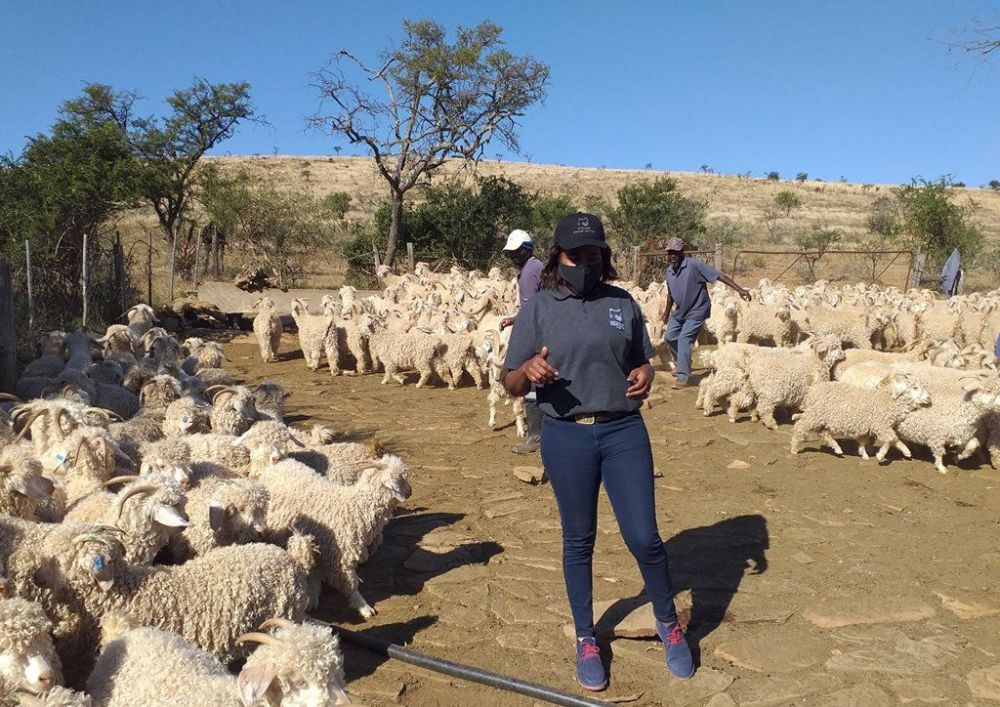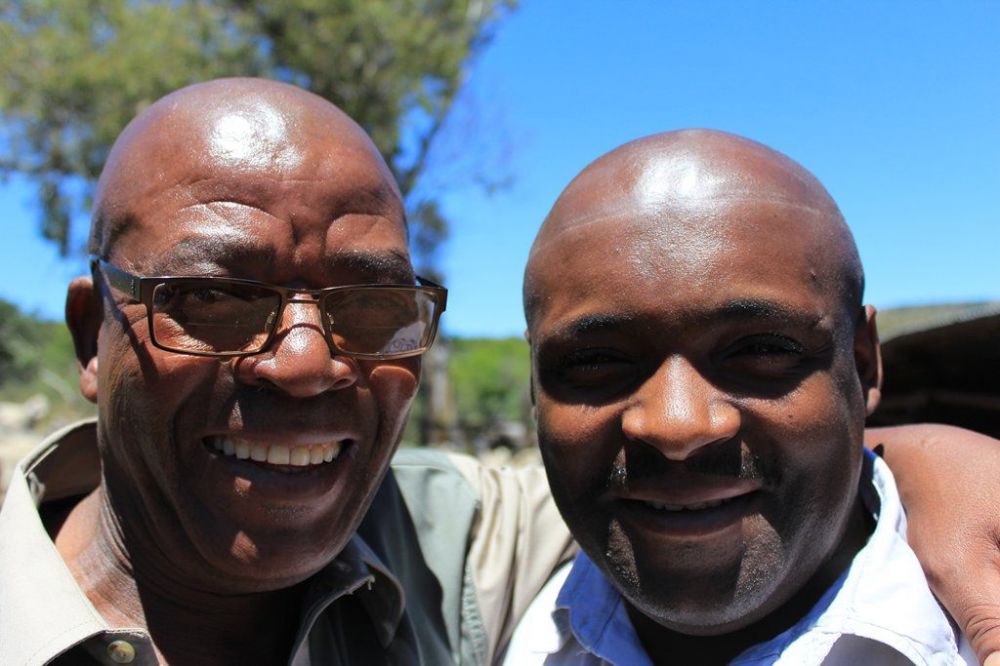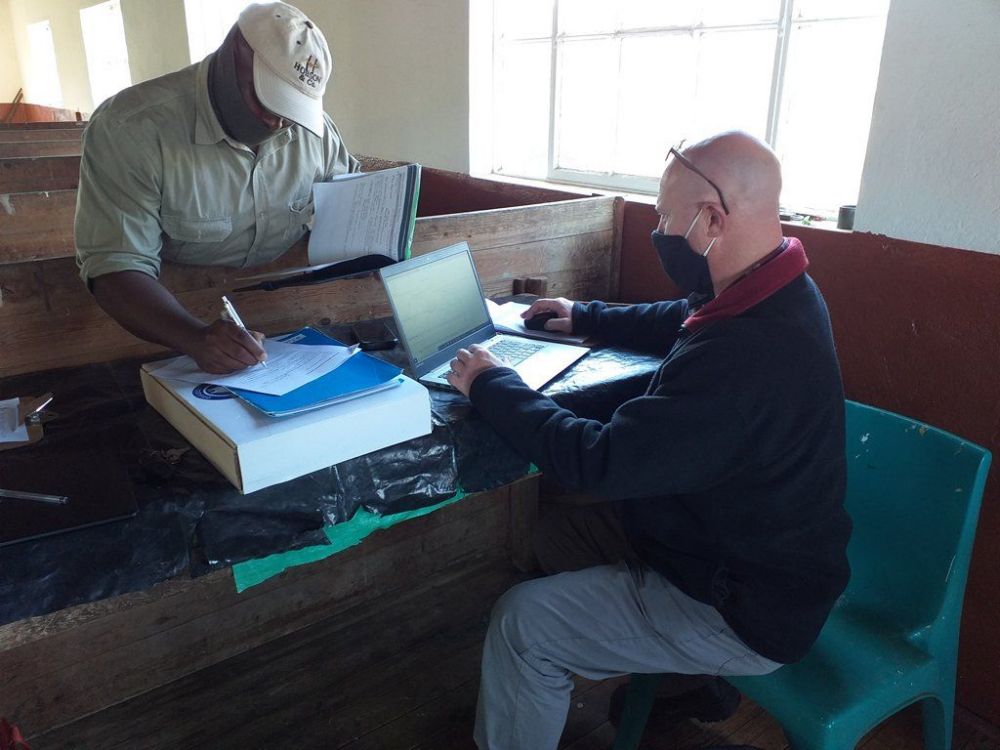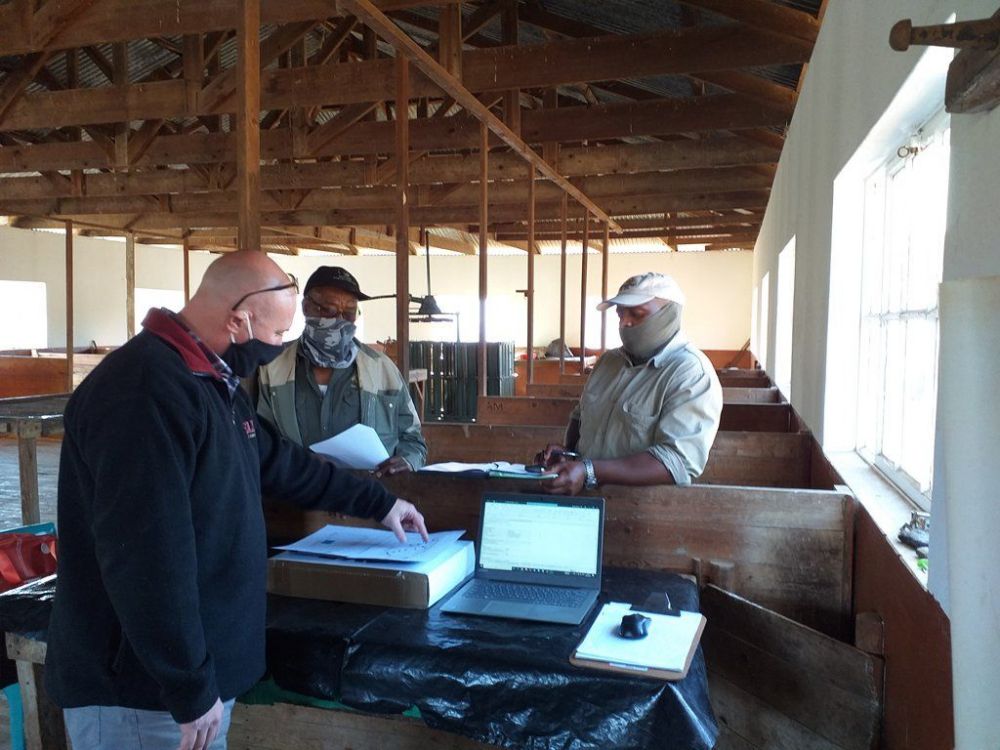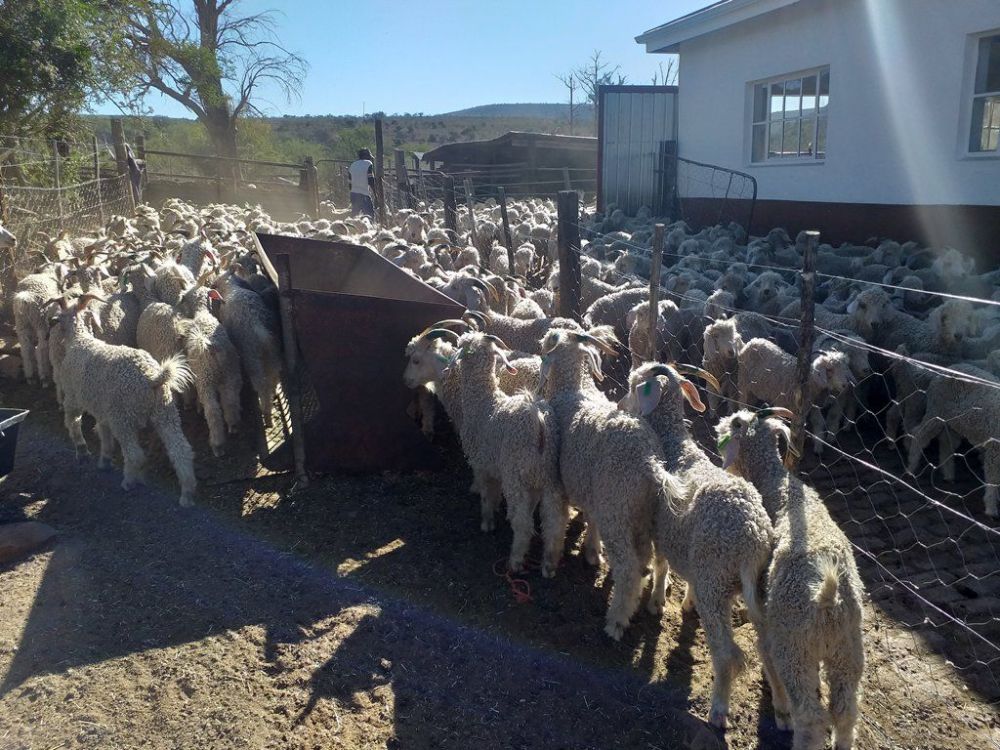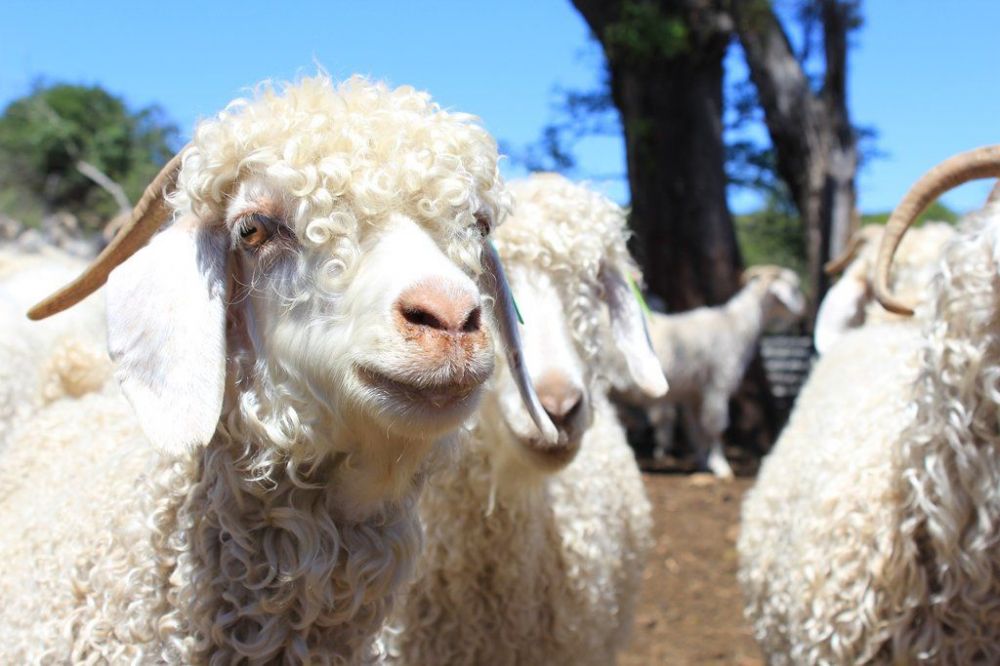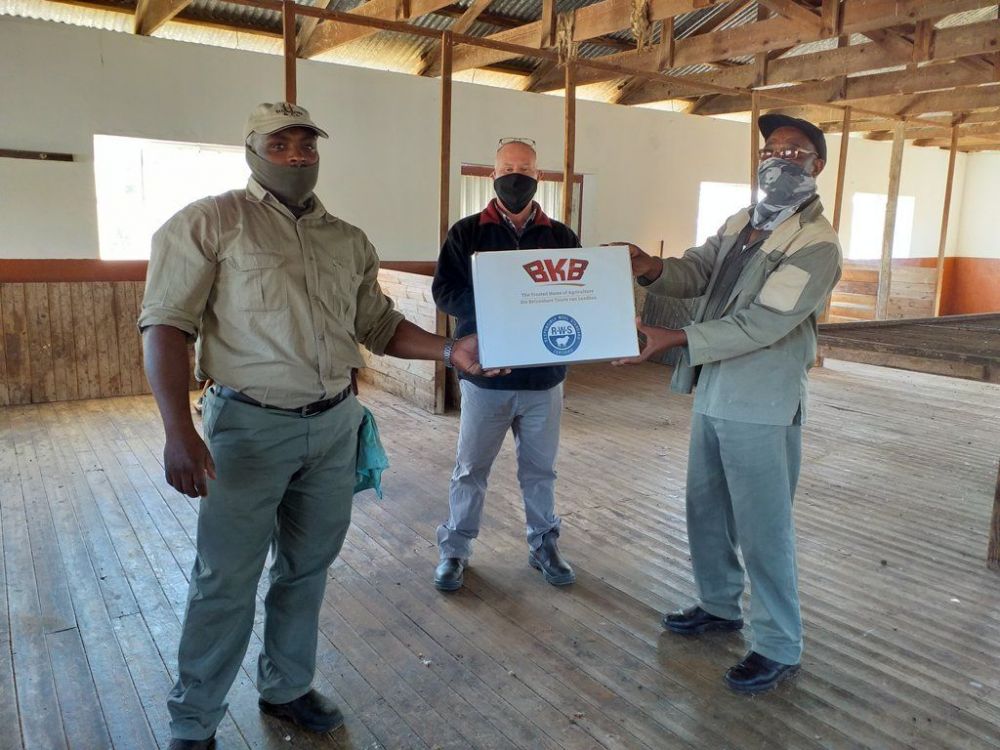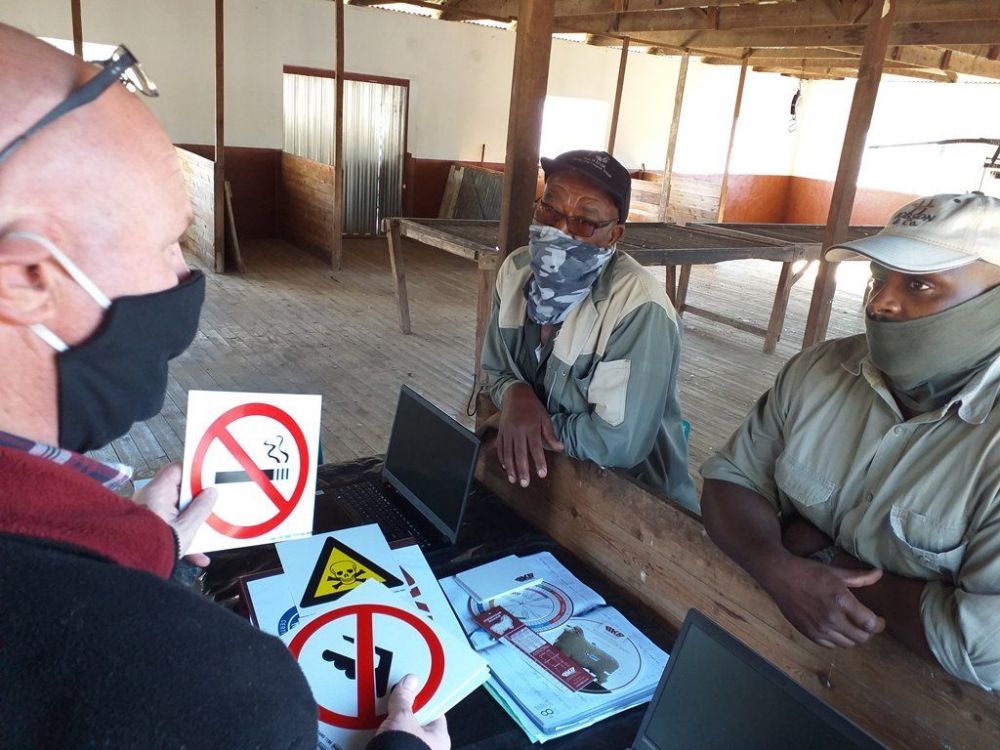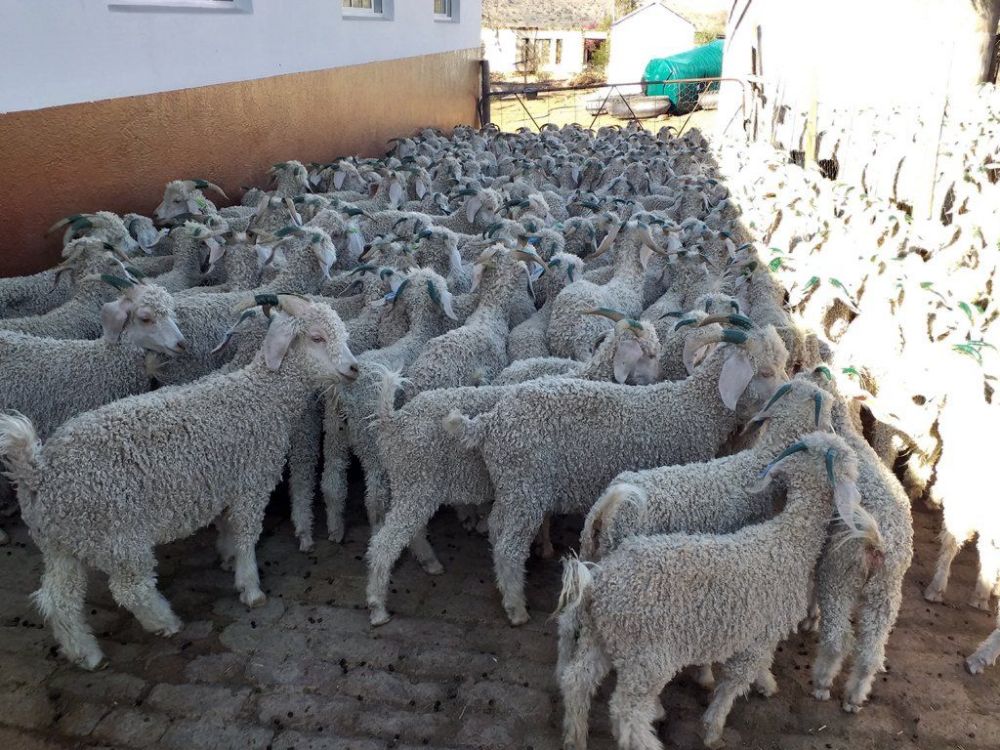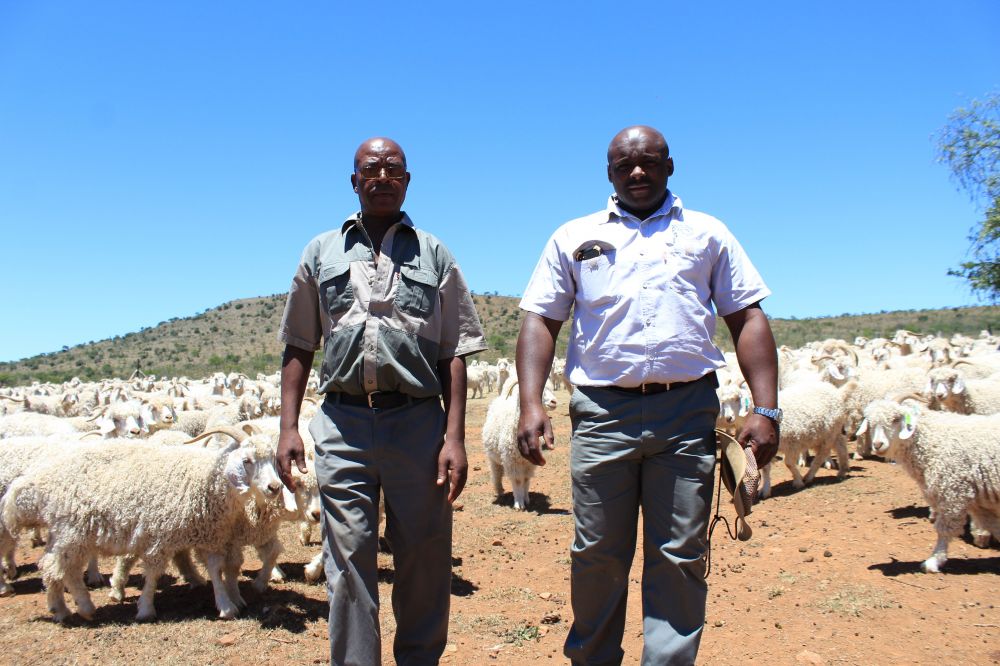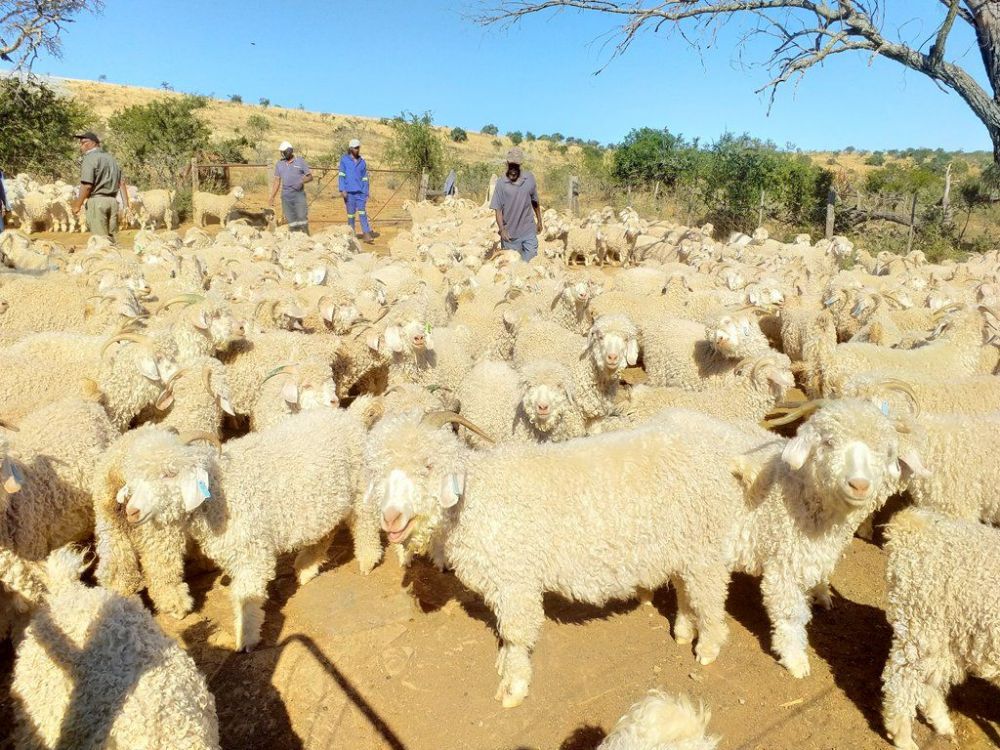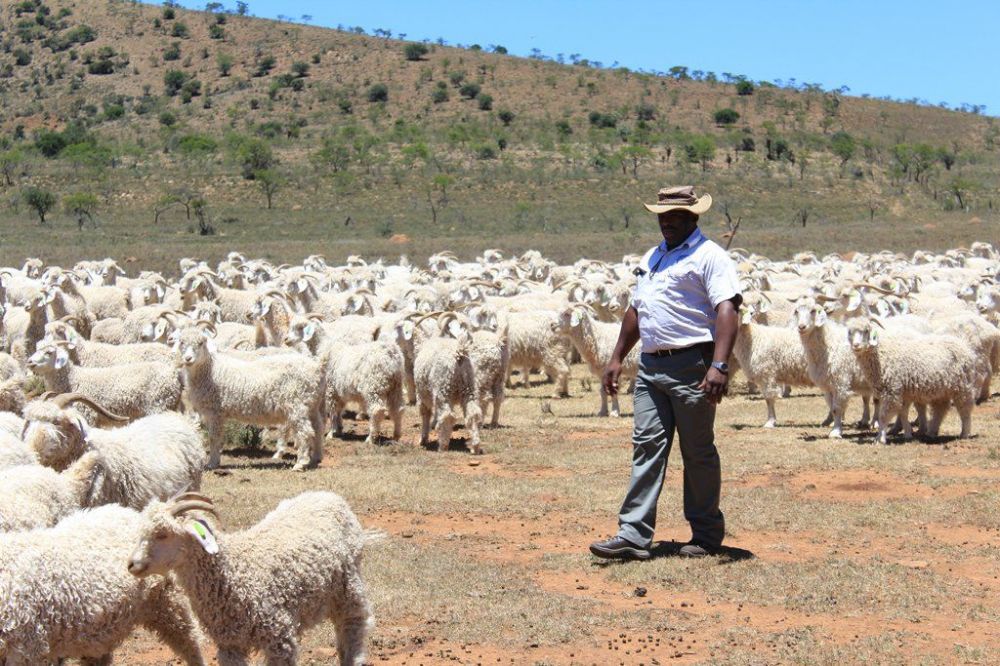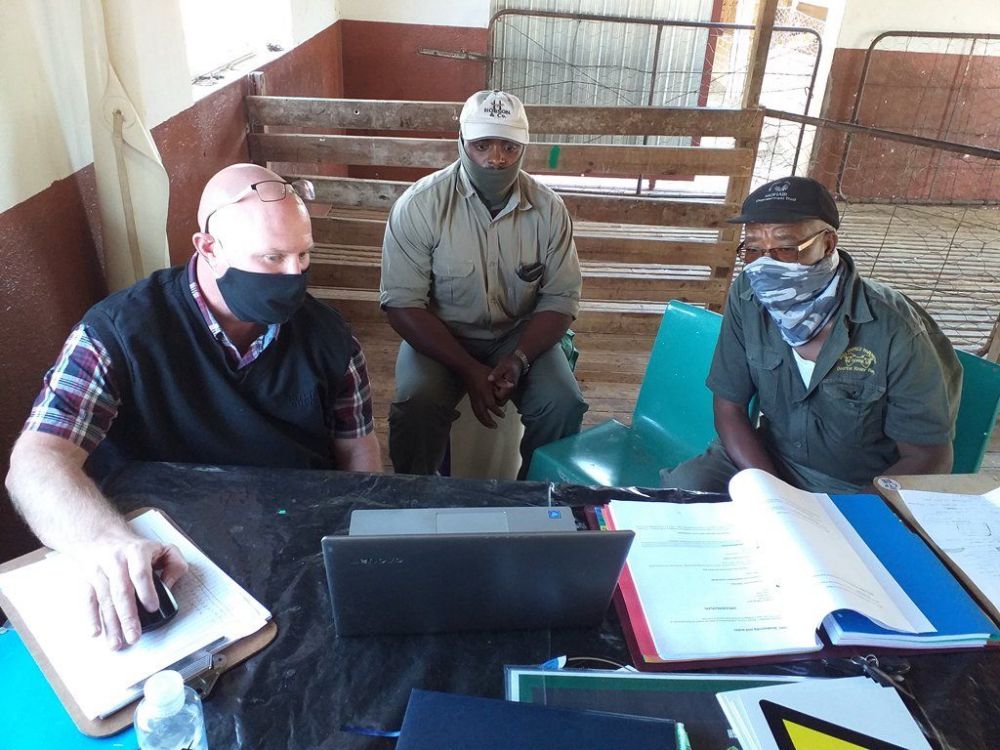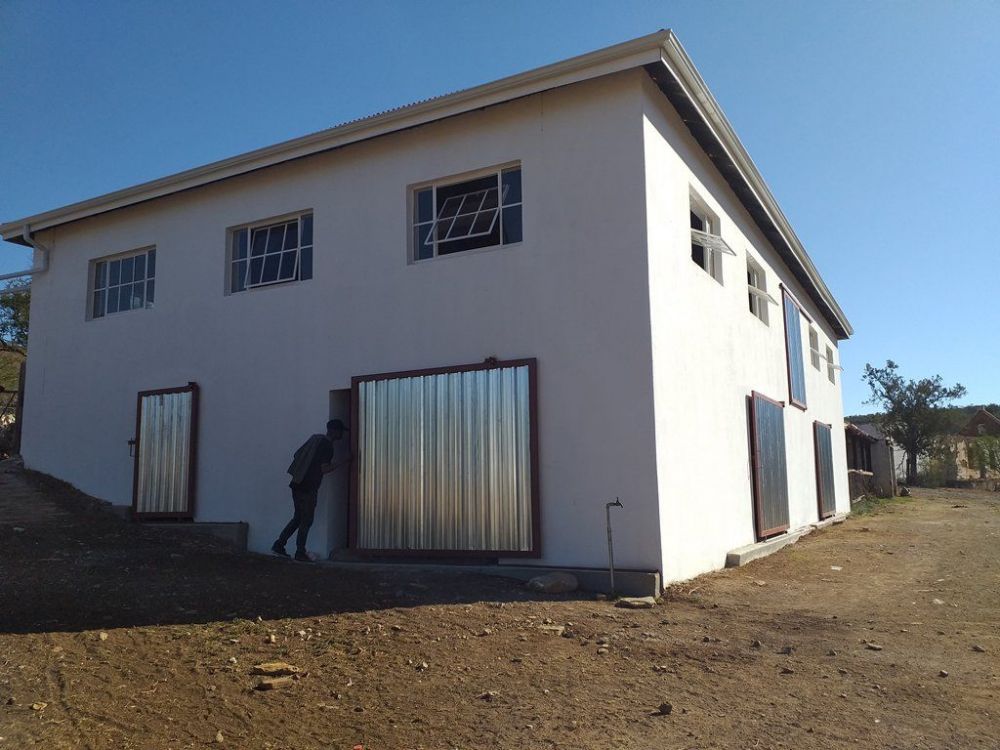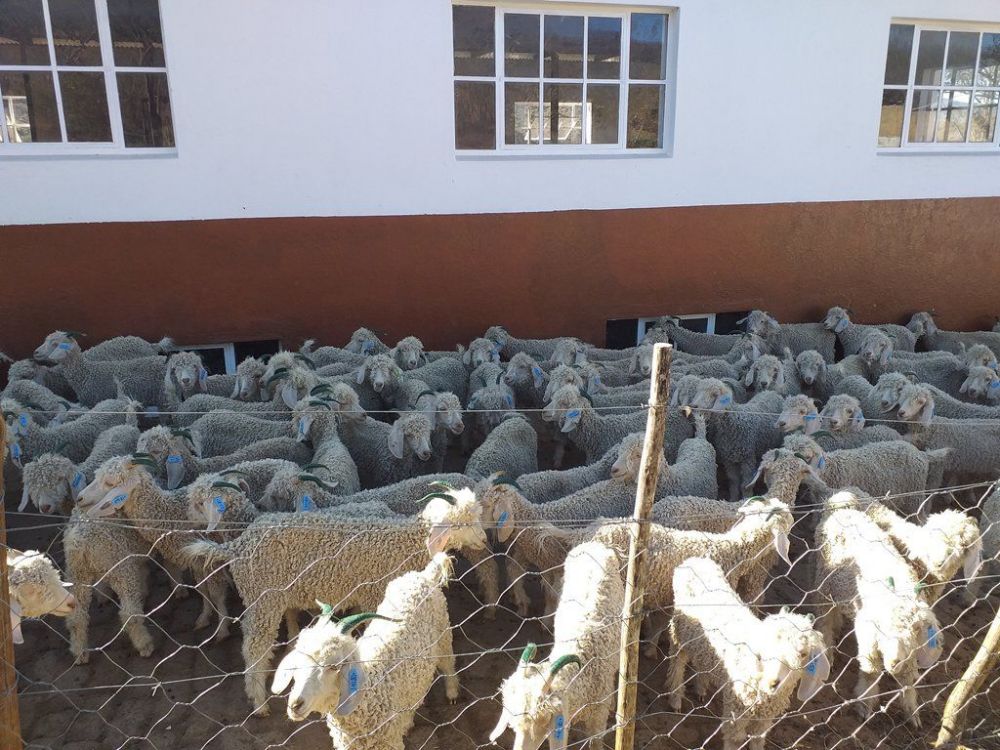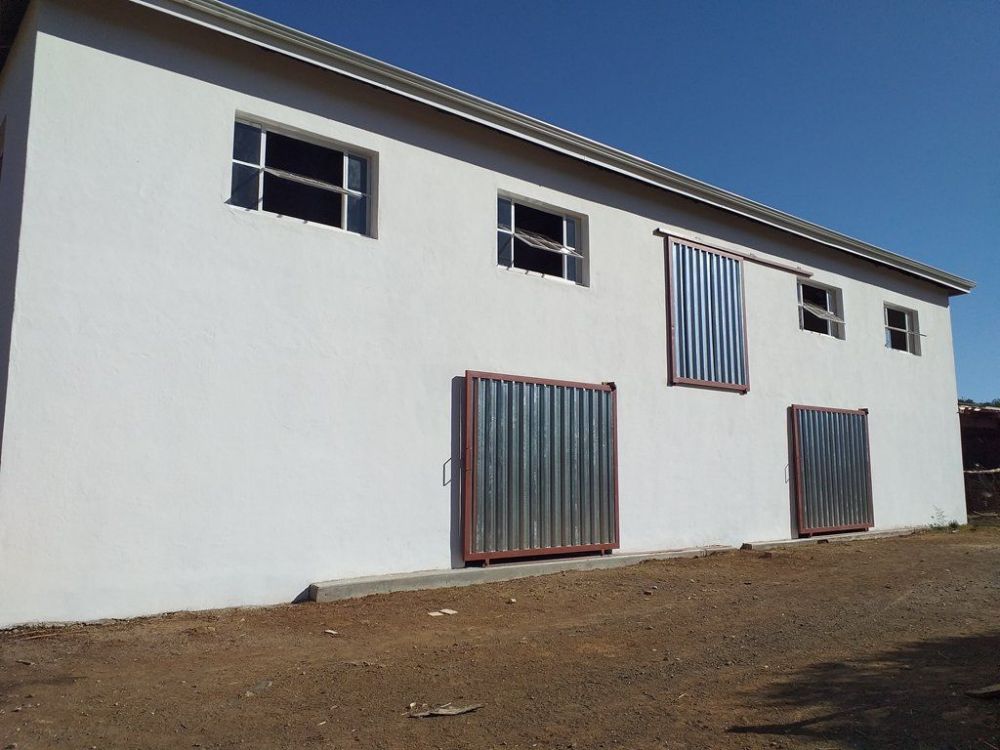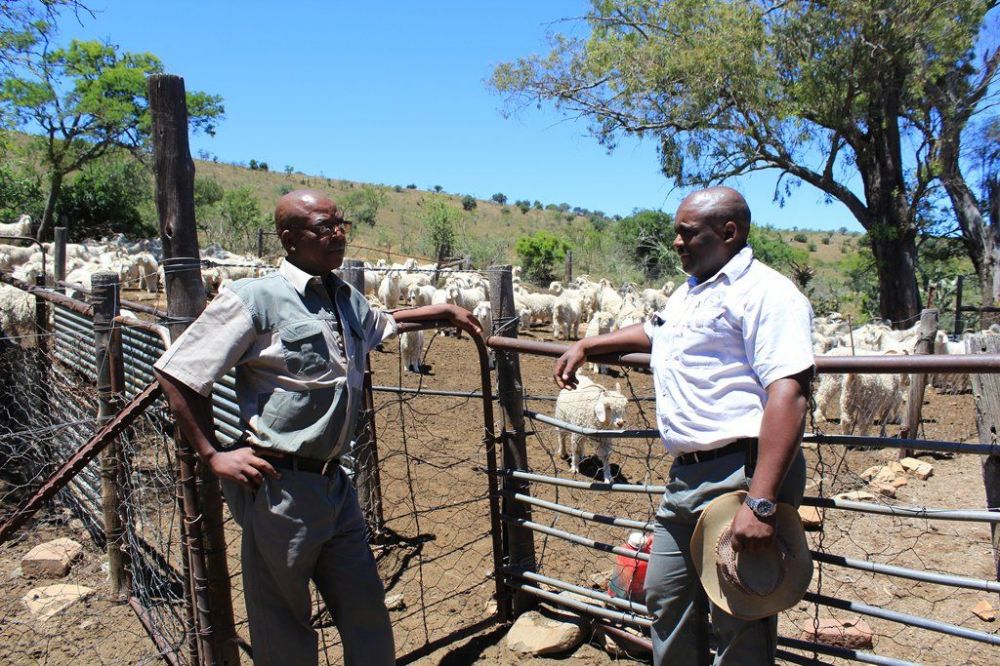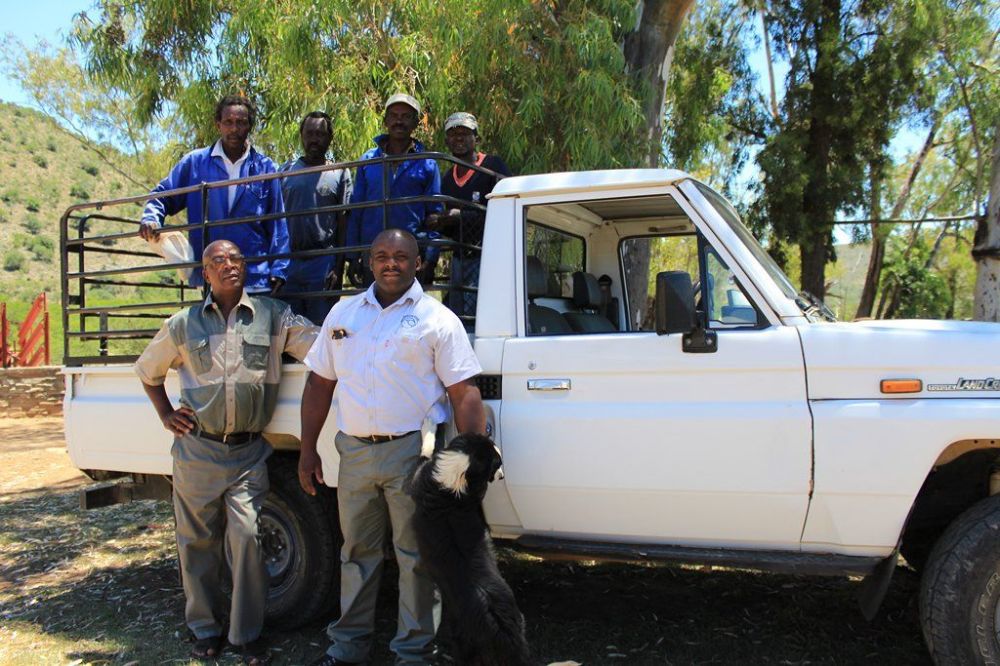An Empowerment Trust success story
By Mohair Journal 2017/18
Wednesday, 1st August 2018How a love of farming became an Empowerment Trust success story
2019 - The Mohair Empowerment Trust success story Doornrivier Farm, has expanded recently bringing their total number of Angora goats to around 2000! Doornrivier Farm is going into 2020 with a revamped shearing shed by Eastern Cape, Department of Rural Development and Agrarian Reform.
"A man must have cattle."
These are the words that started a love of farming that has seen two brothers grow their agricultural operations from a handful of cows to a successful multi-faceted farm that includes the most successful partnership the Mohair Empowerment Trust has launched to date.
Simphiwe Fani, 42, and his older brother Linda, 55, currently have more than 130 head of cattle, 120 boer goats and more than 1000 sheep, but their pride and joy is the herd of more than 1000 angora goats which they are slowly turning into their most lucrative asset.
Their journey began 20 years ago with the wise words their grandfather imparted to Linda.
“My grandfather always told me that a man needs cattle. It represents his wealth and success. Farming was not necessarily the goal, but over time it has become our passion,” he said.
The Fani brothers were born and raised in Tarkastad, a small town in the centre of South Africa’s Eastern Cape Province, where agriculture is the main economic driver.
Together Linda and Simphiwe approached Landbank for a small loan – R12 000 with which they bought four head of cattle but, without land of their own, the cattle had to go to a nearby government-owned communal farm.
“Over time we were able to repay that loan. Then, through further loans and money from our own pockets, we were able to expand our operations,” Simphiwe explained.
As their herds grew they needed more space and grazing, and their cattle were moved from one government farm to the other. This went on for more than a decade, until 2012 when their hard work and dedication finally paid off.
“We submitted an application to the Department of Rural Development and Agrarian Reform, hoping that we could get some land of our own and find some stability for our operations. And in 2012 we signed a lease agreement for Doornrivier,” Simphiwe said.
However, the 4 500 hectare farm, near Somerset East, was in a very poor condition, and the Fanis had to repair a section of fencing where they could keep their 85 head of cattle and 15 boer goats for the time being.
But their passion and ambition quickly saw them growing their business and branching out into new territory.
They sold some of their cattle to bring a third livestock to the farm, buying 43 sheep ewes and one ram to add further value to their operations and to increase their revenue.
Their success did not go unnoticed, and in 2014 Mohair South Africa identified them as potential beneficiaries of its Empowerment Trust.
Established in 2010, the Empowerment Trust’s aim is to assist emerging farmers to start mohair production on their farms. Beneficiaries are given a certain amount of angora goats, which they repay over a predetermined time period interest-free.
At that stage, the Fanis had done their homework and were planning on adding angora goats to their expanding operation. However, they had planned to do it on their own and initially met the Empowerment Trust’s proposal with a measure of scepticism.
“The former manager met us and told us they were looking at helping emerging farmers. I admit we were very sceptical. Why did they approach us? What was in it for them? But the more we listened the more it started to make sense,” Simphiwe said.
“Besides, we were heading towards angora farming anyway. After discussing it with my brother we realised that our goals, and the goals of the Empowerment Trust, lined up perfectly.”
Their initial agreement read as followed: 1000 angora goats, to the tune of approximately R1-million, repayable over five years, interest-free. This meant 25 percent of the profits from the Fanis mohair clips went towards repaying their debt, and the remaining 75 percent went into their pockets.
But the Fanis had other plans.
They went back to the Empowerment Trust with a counter offer. They would keep only 20 percent of the profits, with the remaining 80 percent going towards repaying the money owed to the Trust.
“We were afraid of this loan. We wanted to repay it as quickly as possible. We don’t like debt. We want to know that what we have is ours,” Linda said.
And so their relationship with mohair began.
Initially, the Fanis were unfamiliar with angora goats and wanted to minimise the risk by farming with the “easiest form of the animals” so, as per their agreement with the Trust, about 1000 kapaters (castrated rams) were brought to Doornrivier between 2014 and 2017.
Empowerment Trust manager Sarel Hayward said kapaters are ideal for inexperienced farmers as they are easier to manage than farming with ewes and the added complications that come with kids.
“With kapaters you have to keep an eye out for parasites and diseases and manage your shearing operations, without having to worry about breeding, kidding and a host of other issues it brings,” Hayward said.
He explained that farmers, like the Fanis, keep their herd young by regularly classing the goats – checking their condition and setting aside animals that are too old to produce good quality mohair. These animals are sold, the money taken as payment for their loan, and new goats are sent to the farm. The cost of the new goats is then adding to the outstanding amount still owed to the Empowerment Trust.
“The Fanis made the right decision by admitting their inexperience and taking on only kapaters. The plan is to approach all our future projects like this,” Hayward said.
According to Hayward, the last batch of goats delivered to Doornrivier included about 50 ewes and two rams, giving the Fanis the opportunity to now expand their herds on their own.
“Initially we wanted to give them 150 ewes, but the brothers said they want to minimise their risk, so the final agreement saw 50 ewes delivered to their farm. Now they can start their own breeding project.”
The end of 2017 marked a special moment for the Fani brothers, as well as the Empowerment Trust, as the five-year loan was repaid in only three years.
The Fanis successful partnership with the Empowerment Trust also offers a new opportunity. The Empowerment Trust currently has five other similar projects running across the Eastern and Western Cape, and is in the process of identifying more potential beneficiaries.
Negotiations have already started to invest further in the Fanis and, should they be able to secure more land, either through government funding or out of their own pockets, the Empowerment Trust could continue its journey with the brothers.
“If they Fanis get more land we would happily commit even more goats to their operations,” Hayward said.
Linda echoed Hayward’s commitment.
“This marriage is working well. It would be a shame to let it die,” he said.
“Once we secure more land we will definitely be open to negotiating a new deal with the Empowerment Trust.”
The Fanis’ new found passion for mohair stretches beyond just animals and money. They are looking to establish a legacy that will provide security for their future generations as well as secure their family name among some of the agricultural greats.
“We want our children to go to the Grootfontein Agricultural College and specialise in these animals which have given us this great opportunity. We want to see them come back to the farm and take over from us with more knowledge and skills than we have,” Simphiwe said.
“We want other farmers in the area to look at us and say: Hey, those are the Fanis, they are great farmers, they are commercial farmers.”
Advice from the Fani Brothers.
“Do not wait for the government to come to you. If you want things to happen you have to go and find the opportunities yourself. Our dedication and hard work brought us to the point where people noticed us, and in turn that brought big things our way. We do not want to sound arrogant, but we want other farmers to learn from our example.”
“Diversify your operations. You cannot keep all your eggs in one basket. If you only have one commodity, and it fails, you will be left with nothing. You must always have more than one income stream and something to fall back on.”

